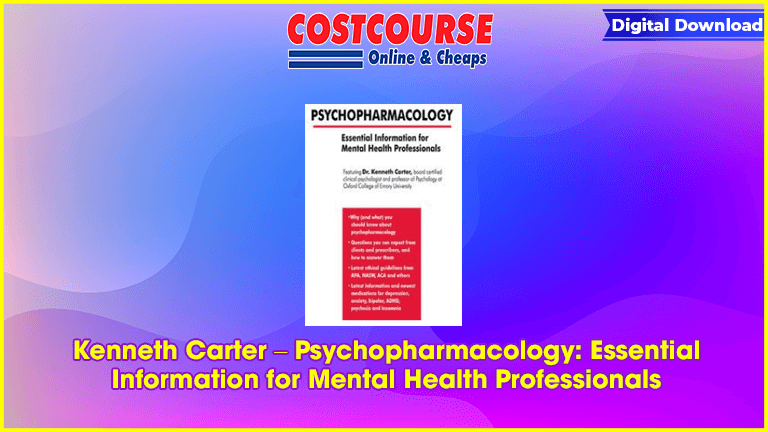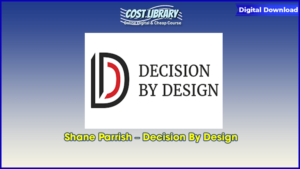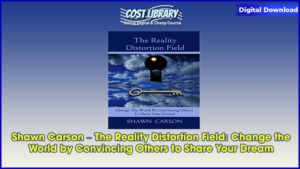Description
Dr. Kenneth Carter, a board-certified clinical psychologist with a Master’s degree in clinical psychopharmacology, shares his clinical experience and training to provide detailed information about the range of common medications prescribed for mental health conditions.
Kenneth Carter – Psychopharmacology: Essential Information for Mental Health Professionals
You will get the latest information on antidepressants, anxiolytics, and common medications for insomnia and Attention-Deficit/Hyperactivity Disorder among others. Through lecture and the examination of multi-disciplinary ethics codes and real case examples, you will take a close look at the ethical decisions that accompany medication use and the non-prescribers role and limits with regards to medication discussions with your patients.
Dr. Carter answers questions from providers in the field and walks through examples of practical clinical discussions that come up every day in practice, including how to discuss scope of practice with your patients in order to optimize their care when working with multiple providers. The goal is for you to finish better prepared to communicate with your clients as well as the prescribers, as Dr. Carter instructs you on how to medications work, their benefits, and the side effects and dangerous reactions associated with them.
Handouts
Manual – Psychopharmacology (13.99 MB) 59 Pages Available after Purchase
Outline
MEDS 101
Case study
Reasons to be knowledgeable about psychiatric medications
Lessons from other disciplines
Pharmacy
Nursing
Ethics guidelines
The common questions clients have about their medications
Handling differences of opinion between yourself and a prescribing professional
GENERAL OVERVIEW OF THE NERVOUS SYSTEM
Organization of the nervous system
Structure of the neuron
Communication between neurons
How medicines interact with the nervous system
DEPRESSION MEDICATIONS
Neurobiology
SSRIs and SNRIs
Mechanism of action
Benefits and adverse reactions
Medications in these categories
Case Study
ANXIETY DISORDER MEDICATIONS
DSM-5® anxiety categories
Deconstructionist approach taken by prescribers
Neurobiology
SRRIs and Benzodiazepines
Mechanism of action
Benefits and adverse reactions
Medications in these categories
Case study
BIPOLAR MEDICATIONS
Monotherapy
Lithium, anticonvulsants, and 2nd generation
Mechanism of action
Benefits and adverse reactions
Medications in these categories
Case study
ADHD MEDICATIONS
Neurobiology
Methylphenidate and amphetamine
Mechanism of action
Delivery systems
Benefits and adverse reactions
Medications in these categories
Case study
ANTIPSYCHOTIC MEDICATIONS
Psychosis symptoms
Neurobiology
1st and 2nd generation
Antipsychotics
Mechanism of action
Benefits and adverse reactions
Medications in these categories
Case study
INSOMNIA MEDICATIONS
Causes and treatments for insomnia
Medications for insomnia
Half-life
Benefits and adverse reactions
Case study
LIMITATIONS OF THE RESEARCH & POTENTIAL RISKS








